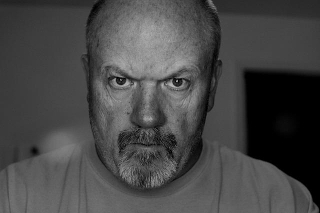
Emotions either call for rewards or threats. While it is good to feel positive emotions in bulk, the negative ones can inspire negative consequences. Other times, the same emotions also play various roles in different situations.
While it is normal to feel different emotions throughout the day, losing control can be bad. Losing control over your emotions can be unhealthy and harmful for the people around you and yourself. This makes it important to learn emotional regulation skills.
It gives you the ability to judge how you should react and when. With emotional regulation skills, you can trust your emotional triggers and figure out when to act on them.
What is Emotional Regulation, and Why is it Important?
Emotional regulation refers to the regulation and control of one’s emotional state.

For many men, anger is the only negative emotion they show with others present.
It is normal for a person to feel various emotions daily. People feel frustrated when they’re stuck in traffic for too long. And, everyone feels sad when they miss the presence of a loved one. Other times, we also feel angry when a person disappoints or lets us down.
There is absolutely nothing wrong with feeling positive or negative emotions daily. Having emotional reactions to different circumstances is a sign of healthy emotional life. However, emotions tend to become more volatile for some people. They may need to learn emotional regulation tactics.
They end up feeling extreme emotions that start interfering with their normal daily life. Such people may feel calm one moment while they may be raging with anger the other.
In such cases, emotions signal threat. Such rapidly changing emotions can damage a person’s credibility with others and personal relationships.
This is where emotional regulation comes into the picture. Several reasons can impede normal emotional regulation, including stressful situations or sentimental ones. No matter the reason for volatility, emotional regulation is important to reduce the risks associated with it.
For example, not being able to moderate your anger can hurt people around you, leading them to pull away. Not only does emotional volatility affect relationships, but it also hurts the individual. They suffer rather unnecessarily as they feel overwhelming sadness.
The good news is that you can learn and improve your emotional regulations skills. You can learn how to manage your negative experiences and enjoy physical and mental health benefits.
Process Model
The process model is the current generic theory of emotional regulation. It suggests that our emotions are generated in a typical sequence of situation, attention, appraisal, and response. The

Not speaking about your emotions with those close to you keeps relationships superficial.
process model goes like this:
- Situation: The generation of our emotions begins with a particular situation. This may be a thought popping in your head or a physical situation like your colleague remarking.
- Attention: Some element of the situation does the work of grabbing your attention. For example, it may be the way your friend’s nose turns red when they’re angry.
- Appraisal: Once the situation has your attention, you appraise it. For instance, you may be worried that your boss will fire you.
- Response: Your response can be both physical and emotional. Initially, you will feel hurt and tear up when a friend says something mean. Then, you will give a physical response like a sentimental reply.
For emotional regulation, understanding the sequence mentioned above can help influence your emotions and respond thoughtfully.
RULER Approach
In simple words, the RULER approach refers to a form of social and emotional learning that significantly helps with emotional regulation. Marc Brackett, Ph.D., the founding director of Yale Center for Emotional Intelligence, developed the systemic, evidence-based approach.

Dr. Marc Brackett, Director of Yale’s Center for Emotional Intelligence
Dr. Brackett’s works typically study the role of emotional intelligence and emotions in the quality of relationships, mental health, decision-making, and learning.
It also addresses areas such as measurement of emotional intelligence, the influence of emotional intelligence training, best emotional intelligence practices, and practices for teaching it.
The five emotional intelligence skills hold a lot of significance for better emotional regulation practices. RULER is the acronym for these skills that are:
- Recognition of your own emotions as well as the emotions of others
- Understanding of the causes and consequences of the specific emotions
- Labeling of specific emotions with a nuanced vocabulary
- Expressing emotion in a healthy way
- Regulation of emotions using various strategies
According to research, the five RULER skills can largely impact a wide range of outcomes, including workplace and academic performance, enhanced skills, stronger relationships, and reduced symptoms of psychological disorders like depression and anxiety.
While it can enhance your well-being, performance, and conflict-resolution skills, RULER also supports the school community in the following ways:
- Helping to understand the value of emotions
- Creating and maintaining healthy emotional environments
- Building emotional regulation and intelligence skills
Bottom Line
Emotional regulation is an incredibly important skill for everyone, especially people who tend to spin out of control too frequently. When emotions get the better of us, they can cause unnecessary strife in our personal and professional lives.
p.s. – Want to get a better handle on your emotions? Schedule a free no-obligation appointment directly in my calendar here. I look forward to our conversation!

Paul Strobl, MBA, CPC
Owner of Confide Coaching, LLC
Paul is a Master Life Coach for individuals, executives and business owners. Originally from Houston, Texas, he has been location independent for most of his adult life. He currently resides in the Rhodope Mountains of Bulgaria near the Greek border with his brilliant wife, 13-year-old stepson (officially adopted in 2021!) and a Posavac Hound rescue.

